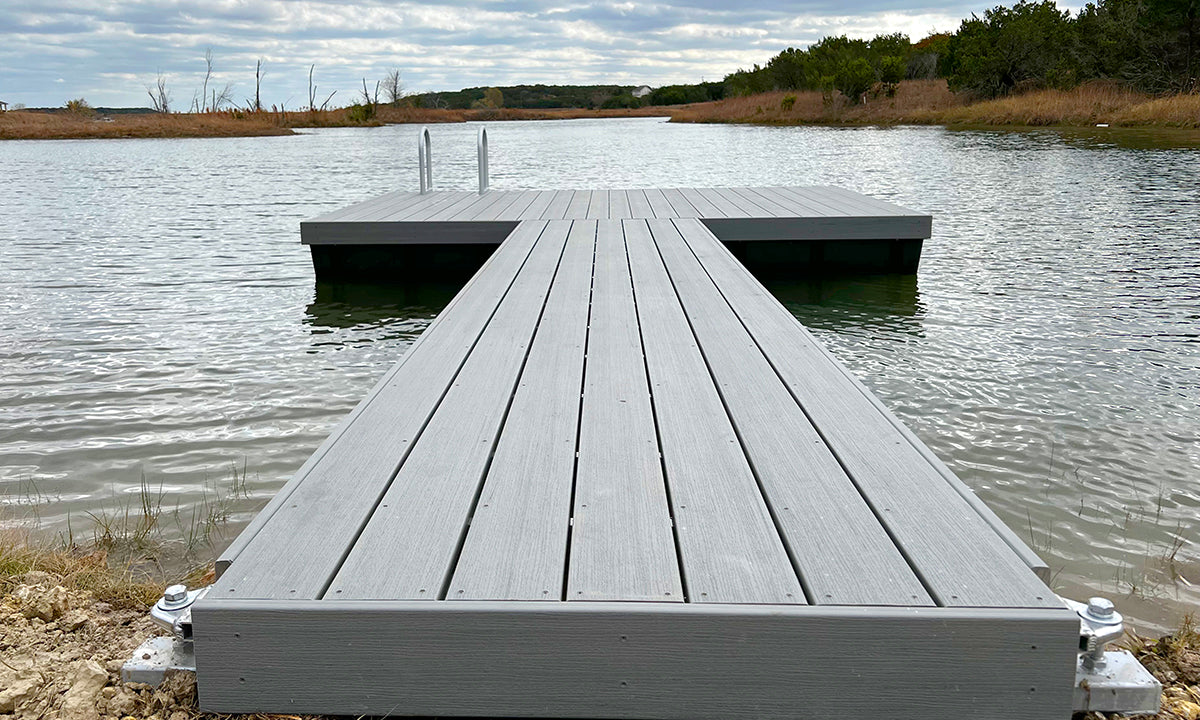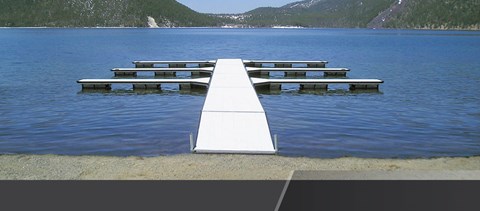The Ultimate Overview to Selecting the very best Floating Docks
Choosing the suitable floating dock calls for a thorough understanding of different aspects that affect both efficiency and durability. Aspects such as dock kinds, materials, and important attributes considerably affect your decision-making process. Factors to consider around setup and budget can even more make complex the choice. By checking out these aspects methodically, one can make certain an investment that not only satisfies immediate demands however likewise boosts total residential property value. As we discover these critical components, it ends up being clear that the right choices can result in a useful and long lasting solution tailored to your certain needs.
Recognizing Floating Dock Kind
When selecting a drifting dock, it is important to comprehend the various types available, as each offers unique objectives and applications. Floating docks mostly fall into three classifications: modular, stationary, and pontoon docks.
Modular docks are composed of specific sections that can be conveniently set up or reconfigured, making them optimal for changing water degrees and varied usages, such as recreational tasks or commercial procedures. Their versatility permits customization based upon particular requirements.

Pontoon docks are identified by their resilient structure, typically composed of multiple pontoons that supply stability and support. They are especially well-suited for bigger vessels and are typically used in marinas or for beachfront homes. Comprehending these kinds help in choosing the most appropriate floating dock to satisfy specific needs, ensuring optimum performance and safety.
Trick Materials for Toughness
Selecting the right materials for floating docks substantially influences their resilience and durability. The most usual products include timber, plastic, steel, and composite products, each offering distinctive advantages and limitations.
Timber, often preferred for its aesthetic appeal, needs routine upkeep to withstand dampness and degeneration. Pressure-treated lumber can enhance resistance to rot, but it might still be at risk to pests and weathering.

Plastic docks, constructed from high-density polyethylene (HDPE), are immune to deterioration, UV radiation, and impact, making them a preferred choice for coastal environments. Their lightweight nature also assists in simple installation and moving.
Metal docks, normally built from aluminum or galvanized steel, supply exceptional strength and longevity. They are immune to deterioration, particularly when dealt with, however may require additional insulation to avoid warmth accumulation in hot climates.
Composite materials, incorporating timber fibers and plastics, deliver the benefits of both wood and plastic, withstanding dampness and fading while calling for marginal upkeep. - dock company
Inevitably, the selection of products must straighten with environmental problems, intended use, and upkeep choices to make sure the floating dock stays functional and cosmetically pleasing gradually.
Crucial Features to Consider
While the choice of materials is vital, taking into consideration important features for floating docks is just as important to guarantee ideal efficiency and individual complete satisfaction. One key attribute to examine is the dock's buoyancy capability, which establishes how much weight it can support without immersing. dock company. This is important for suiting watercrafts, individual boat, and also recreational activities
In addition, portability is a significant factor to consider. Relying on your requirements, you might desire a dock that is very easy to move and dismantle, particularly if you plan to move it seasonally. Stability is another important feature; a well-designed floating dock ought to decrease motion triggered by wind and water currents, offering a protected system for customers.
Safety functions, such as non-slip surface areas and rounded edges, are additionally crucial to protect against crashes, specifically in wet conditions. Moreover, think about the availability of devices, such as cleats, bumpers, and ladders, which can enhance the performance of your dock.
Installation and Maintenance Tips
Establishing up and maintaining a drifting dock calls for mindful planning and focus to detail to ensure its durability and optimal efficiency. Begin by selecting an appropriate place that minimizes direct exposure to strong currents and waves, which can create wear and tear. Make sure that the water deepness is sufficient for the dock's elevation which it is anchored firmly to stop activity.
During setup, follow the maker's standards carefully, as inappropriate assembly can jeopardize stability. Use premium products immune to corrosion, such as light weight aluminum or dealt with timber, to boost durability. Consistently inspect all elements, consisting of floats, connectors, and securing systems, for indicators of damage or wear.
Maintenance is critical for prolonging the life of your dock. Tidy the surface areas periodically to avoid algae build-up and check for any type of loosened Check This Out installations that may call for tightening up. Ensure they remain cost-free and intact from leaks if your dock utilizes flotation protection tools. Furthermore, take into consideration using safety coverings to wooden components to decrease weathering impacts. By sticking to these setup and upkeep ideas, you can appreciate a trusted and useful floating dock for many years to find.
Budgeting for Your Dock
Budgeting for your dock is a vital step that can substantially affect your total contentment and financial investment in a waterside residential or commercial property. Establishing a clear budget plan helps you browse the numerous alternatives readily available and guarantees you make educated choices that line up with your monetary abilities.
Begin by determining the dimension and style of the dock you require, as these variables will greatly affect the expense. Floating docks can vary considerably in price, relying on materials, buoyancy, and features like ramps and accessories. Research various producers and suppliers to contrast rates and comprehend the market value.
Along with first costs, take into consideration ongoing costs such as upkeep, insurance coverage, and possible repairs. Allot funds for these reoccuring costs to avoid shocks down the line. It's also sensible to spending plan for any needed licenses or evaluations, which may be needed by regional regulations.
Last but not least, remember the possible roi. A tactical dock can improve your residential property's worth and appeal, offering a positive financial effect in the long term. By budgeting properly, you can ensure that your dock satisfies your requirements without jeopardizing your monetary stability.
Conclusion
In final thought, choosing the suitable floating dock necessitates a detailed assessment of various variables, including dock types, materials, essential features, and installation procedures. Prioritizing durability and compliance with local guidelines ultimately improves performance and residential or commercial property value. Careful factor to consider of monetary constraints will certainly additionally ensure an audio financial investment. By sticking to informative post these guidelines, individuals can make informed decisions that promote long-term fulfillment and functionality in aquatic atmospheres.

While the selection of products is crucial, thinking about important attributes for floating docks is equally important to guarantee ideal performance and individual fulfillment.Establishing up and keeping a drifting dock requires cautious preparation and focus to detail to guarantee its long life and ideal efficiency. Floating docks can differ dramatically in price, depending on products, buoyancy, and attributes like accessories and ramps.In conclusion, choosing the excellent floating dock requires a comprehensive examination of various elements, consisting of dock kinds, products, necessary features, and setup processes.